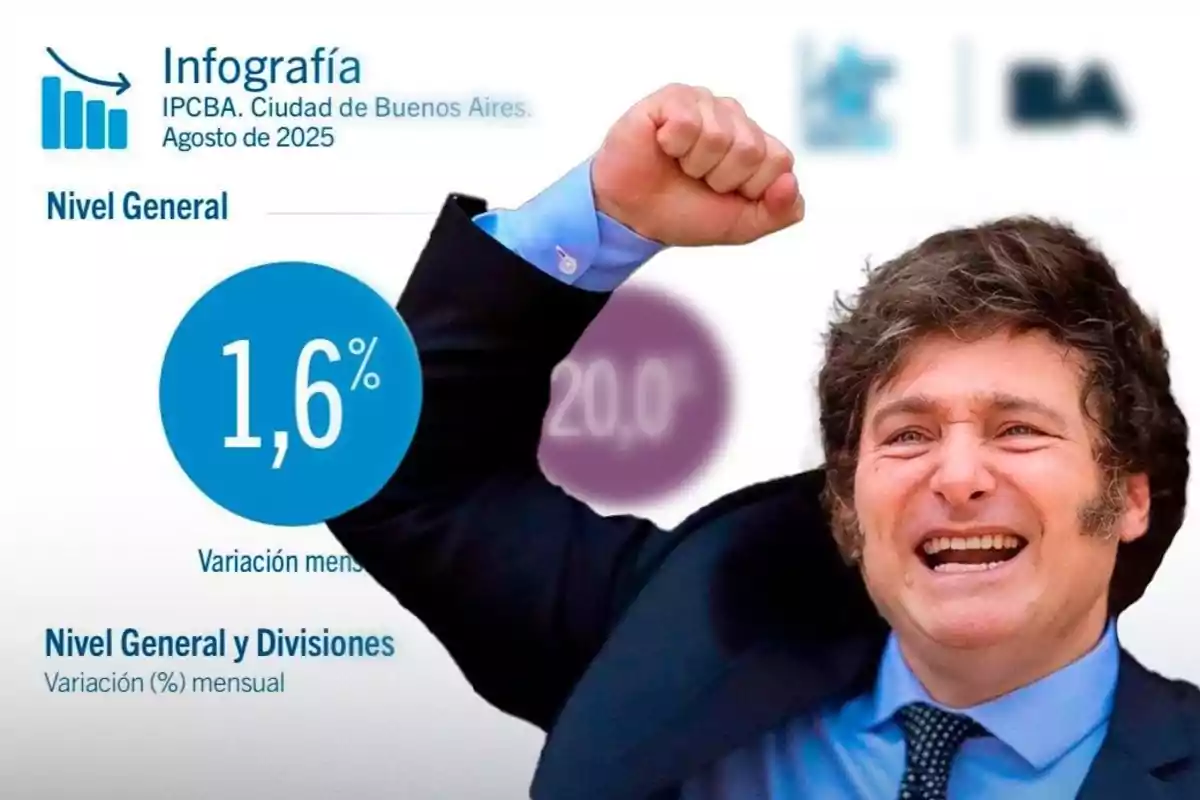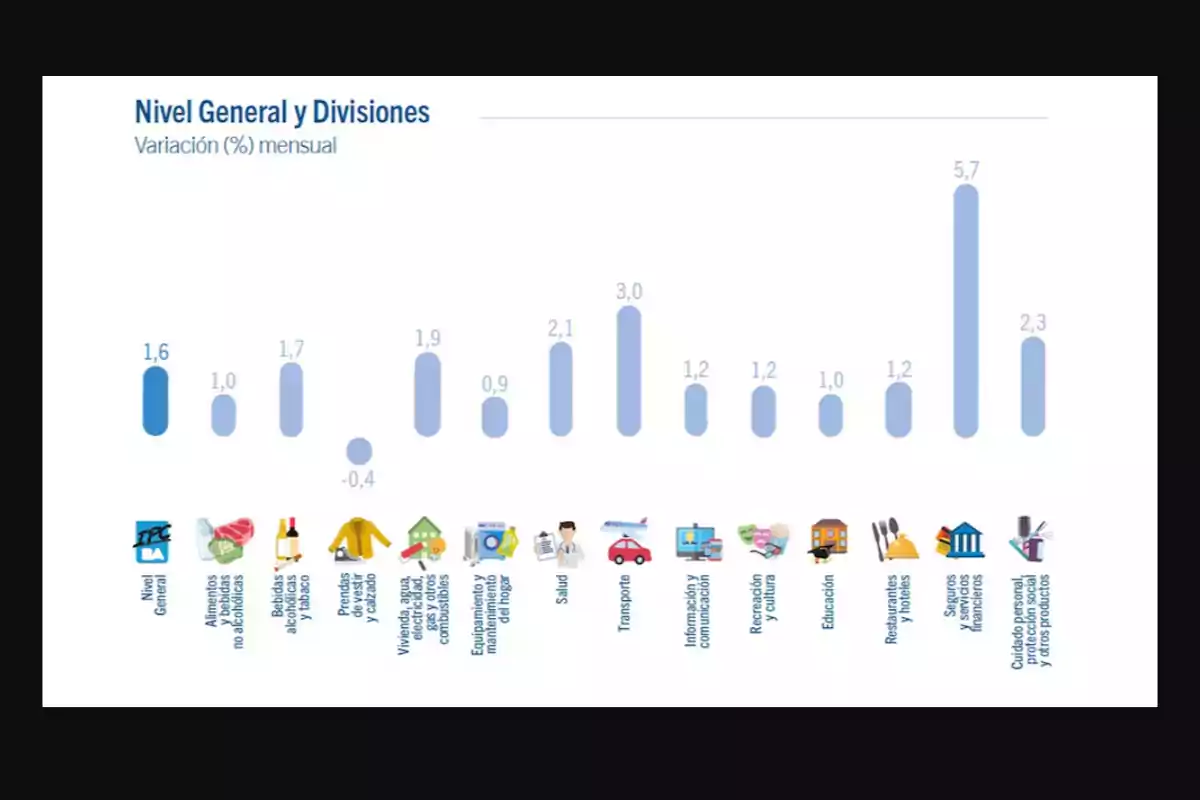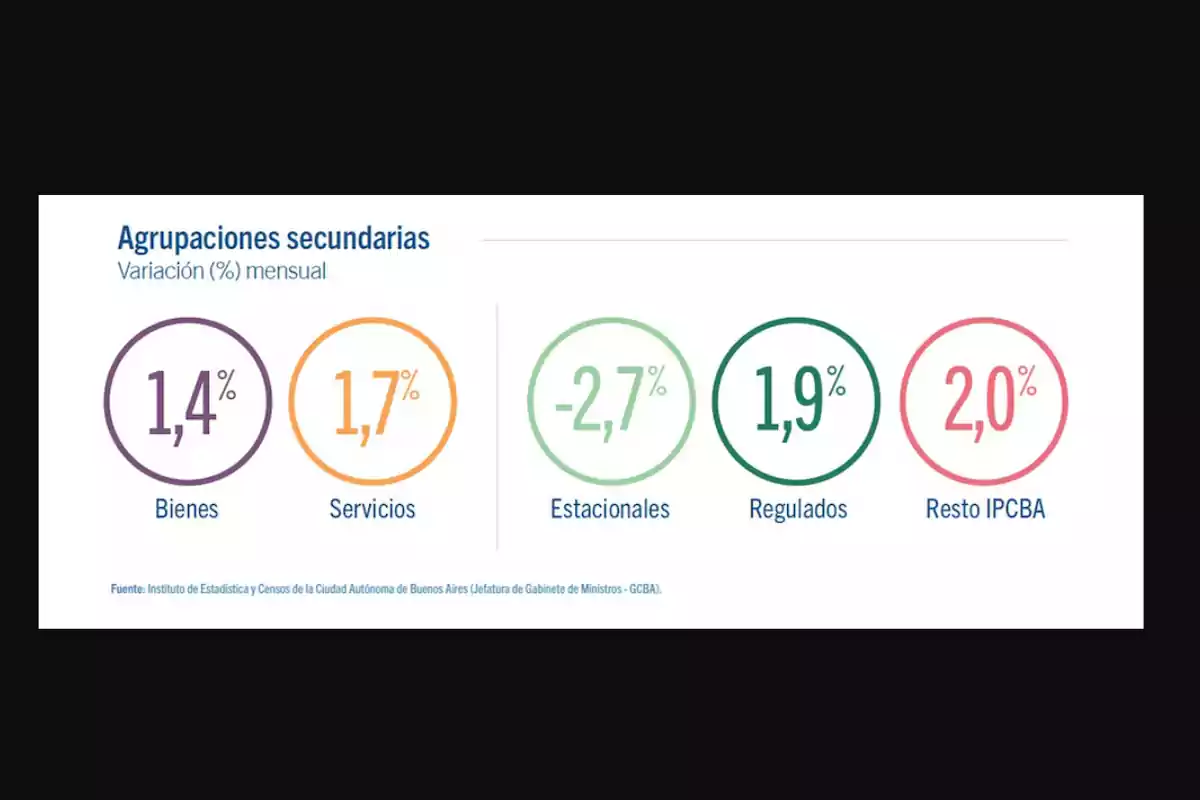
Inflation in CABA slowed to 1.6% in August and has reached 20% so far this year
The price index in Buenos Aires City showed a sharp monthly decline
The Consumer Price Index (CPI) data for the City of Buenos Aires (IPCBA) surprised by showing an increase of just 1.6% in August, below July's 2.5%. In year-on-year terms, the increase accumulated 37.4%, while in the first eight months of 2023 it reached 20%.
The news came in a week marked by the political impact of the ruling party's defeat in Buenos Aires province and a black Monday in the markets, with the dollar rising and stocks falling.
Sectors that drove prices the most

The behavior of Buenos Aires inflation was heterogeneous:
- Housing, water, electricity, gas, and fuels rose 1.9% due to increases in rents, repairs, and building expenses.
- Transportation advanced 3% due to higher fuel and automobile prices, although airfares declined.
- Health climbed 2.1% due to higher prepaid medical plan fees.
- Food and non-alcoholic beverages increased 1%, with sharp rises in baked goods (+2.2%) and fruits (+5.5%), but declines in vegetables and legumes (-1.2%).
- Restaurants and hotels recorded a 1.2% increase, softened by lower tourist accommodation rates.
- Clothing and footwear was the only division with a monthly decrease, of 0.4%, in a month of clearance sales.
Goods, services, and core inflation
The IPCBA report showed that Services grew 1.7% in August, above Goods, which rose 1.4%. In year-on-year terms, services accumulated a variation of 46.2%, compared to 24.6% for goods.

Core inflation rose 2% month-on-month and 39.7% year-on-year, while Regulated prices—such as fuels and transportation—increased 1.9%. Meanwhile, Seasonal categories fell 2.7% thanks to declines in hotels, travel packages, and airfares.
National projections

According to private estimates, the national Consumer Price Index (CPI) data to be published by Indec would be around 2%. Economists point out that the impact of July's devaluation was limited by the recession and the difficulty of passing increases on to prices.
More posts: